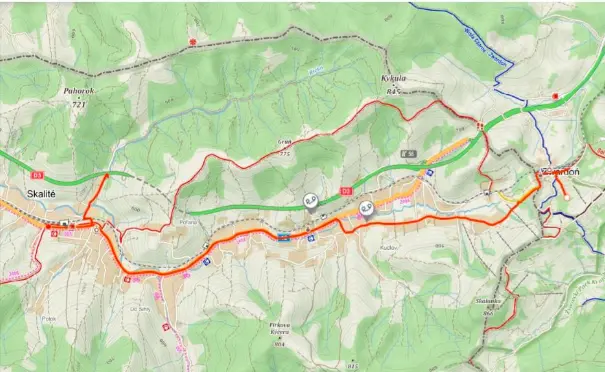WHAT DOES A TYPICAL DAY ON THE MARCH LOOK LIKE?
From waking up in the morning to falling asleep at night – so you know what to expect :-)
BREAKFAST
In each accommodation, breakfast is served buffet-style, so you can gather strength for a full day of marching.
VAN ARRIVAL
Every morning, our Polish driver arrives with a van, which will transport your large luggage to the destination of the day's stage, i.e., to the next accommodation.
WE'RE OFF ON THE MARCH!
After a hearty breakfast and loading the suitcases, we meet in front of the accommodation, from where we set off with a smile on the next stage of the march.
All you need to carry is a small backpack with a raincoat, drinks, a small snack, and personal medications.
BREAKS AND MEETING POINTS
Throughout the day, the leader will announce several breaks to recharge - often the breaks are near shops, gas stations, or mountain huts, where you can buy something tasty to eat or visit the restroom.
At selected locations, there are so-called meeting points where our drivers, Jarda and Ivana, can transport participants to the accommodation or to another meeting point if necessary, in case they want to continue later in the stage.
ARRIVAL AT THE ACCOMMODATION
In the afternoon, the exact time depending on the pace of the group, we arrive at the accommodation where your luggage will already be waiting for you.
DINNER
After checking in, a short rest, or a well-deserved shower, we have a warm dinner together.
NEXT DAY BRIEFING
After dinner, our leader and their assistants will introduce you to the route profile for the next day and provide other important organizational information.
EVENING PROGRAM / FREE TIME ENTERTAINMENT
On some evenings, we have a voluntary program prepared for you – this may include a film screening, a lecture, or a discussion.
On other evenings, there is free time, which you can spend continuing discussions with fellow marchers, enjoying well-deserved rest, or singing with a guitar :)
PROFILES OF INDIVIDUAL STAGES
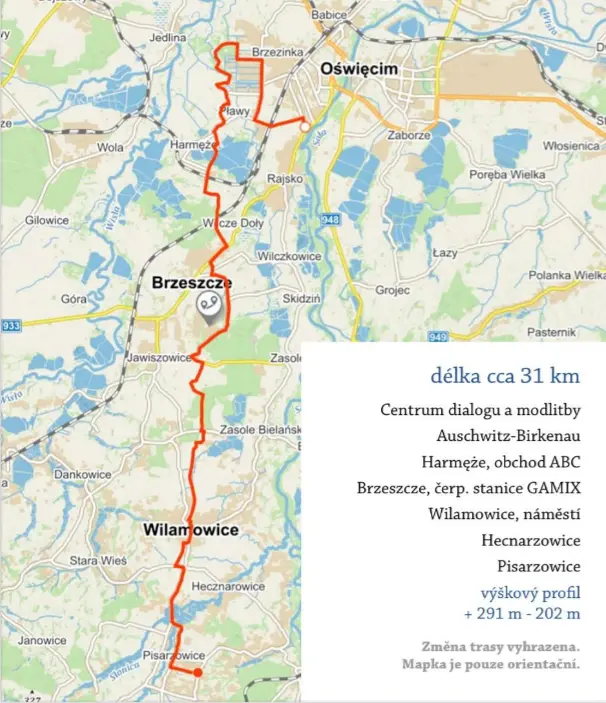
DAY 1 (31 km)
The first and longest stage of the Vrba-Wetzler Memorial march begins at the Center for Dialogue and Prayer in Oświęcim. We will gradually pass through the extermination camp Birkenau, where we will stop near the Mexico block, where A. Wetzler and R. Vrba hid before embarking on their escape through the Polish Beskyds to Slovakia.
The stage is flat, passing through inhabited areas until we reach the village of Pisarzowice, where the central duo was offered help and shelter by a local woman.
DAY 2 (22 km)
The second stage is 9 km shorter than the first, but don’t let that fool you. This is a 'mountain' stage, with a large portion of the march leading through forested terrain.
The march will once again be enriched by readings from the books of both prisoners, and the stage itself ends at the picturesque mountain hut Magurka Wilkowicka.
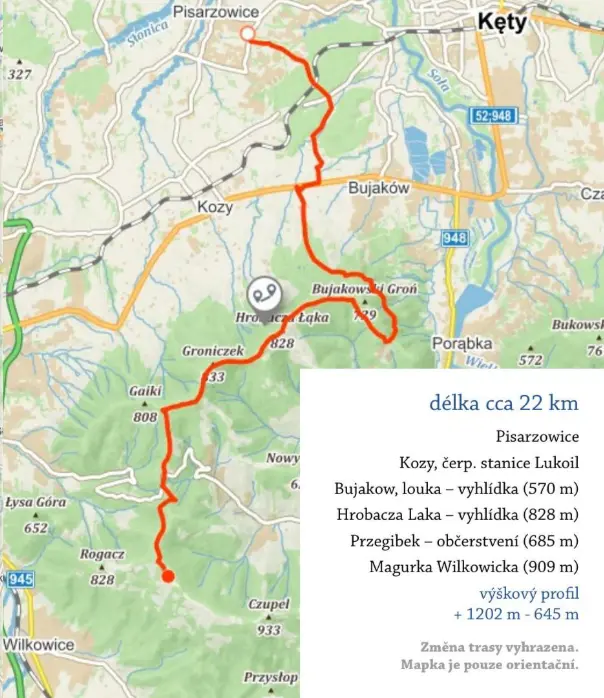
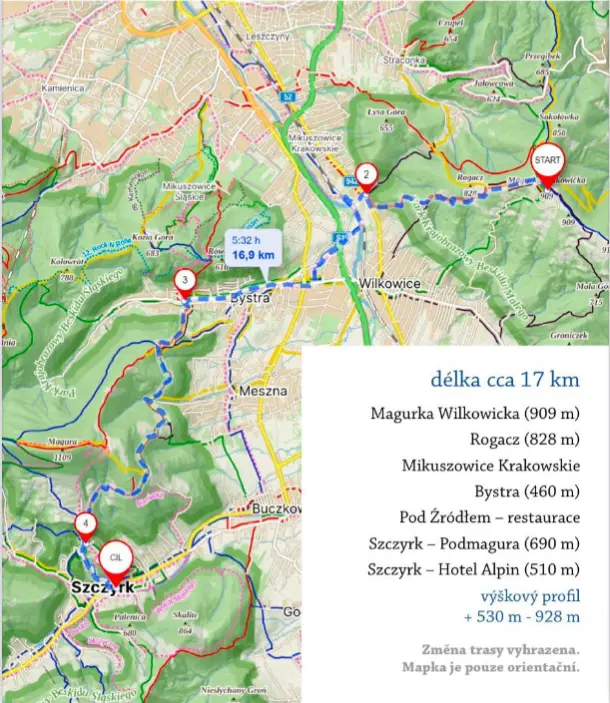
DAY 3 (17 km)
During the third stage, we descend steeply through the mountains to the village of Bystra, from where we then climb to the mountain town of Szczyrk. The reward for the challenging descents and ascents is accommodation in the beautiful Alpin Hotel.
DAY 4 (22 km)
On the fourth day, we will start in an unusual way – by taking a cable car from the town of Szczyrk to the summit of Skrzyczne. From there, we will enjoy a beautiful ridge walk through the Polish Beskids, followed by a descent through a rocky riverbed to the village of Milówka, where a bus will pick us up and take us to our accommodation.
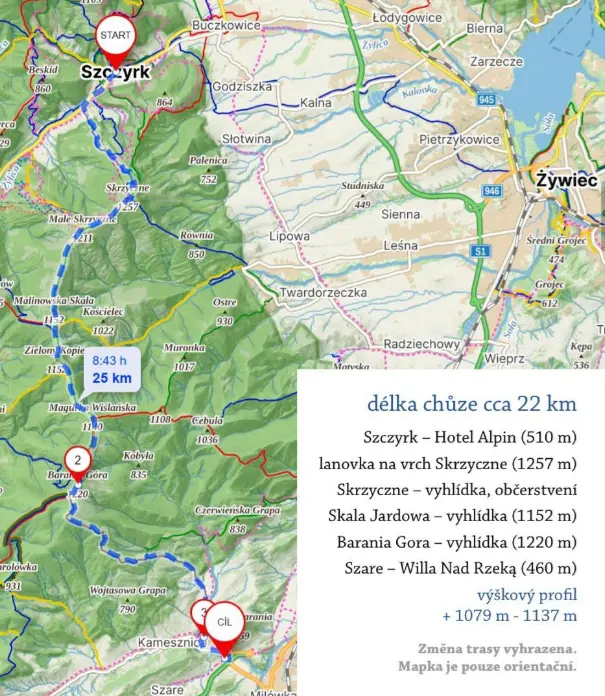
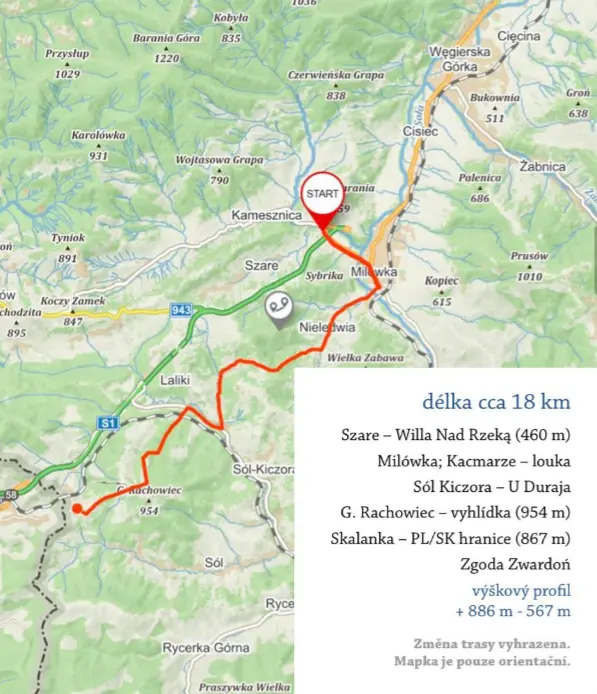
DAY 5 (18 km)
The fifth stage begins with a transfer back to where we left off – to the village of Milówka, which plays a significant role in the story of R. Vrba and A. Wetzler.
The fifth day of the march is truly a reward – we will walk through beautiful meadows and rolling hills until we reach the Polish-Slovak border, where we will visit the place where the heroes crossed back into their homeland in the spring of 1944.
DAY 6 (11 km)
The last day is mainly spent in the village of Skalité, where A. Wetzler and R. Vrba were hidden by local residents, the Čanecký family, before reaching Žilina, where they wrote the report on the atrocities that took place in the Auschwitz-Birkenau concentration and extermination camp.
Like them, we will take a train from Skalité to Žilina, where we will visit the Vrba and Wetzler memorial room on Hollého Street, located in the former Jewish retirement home.
